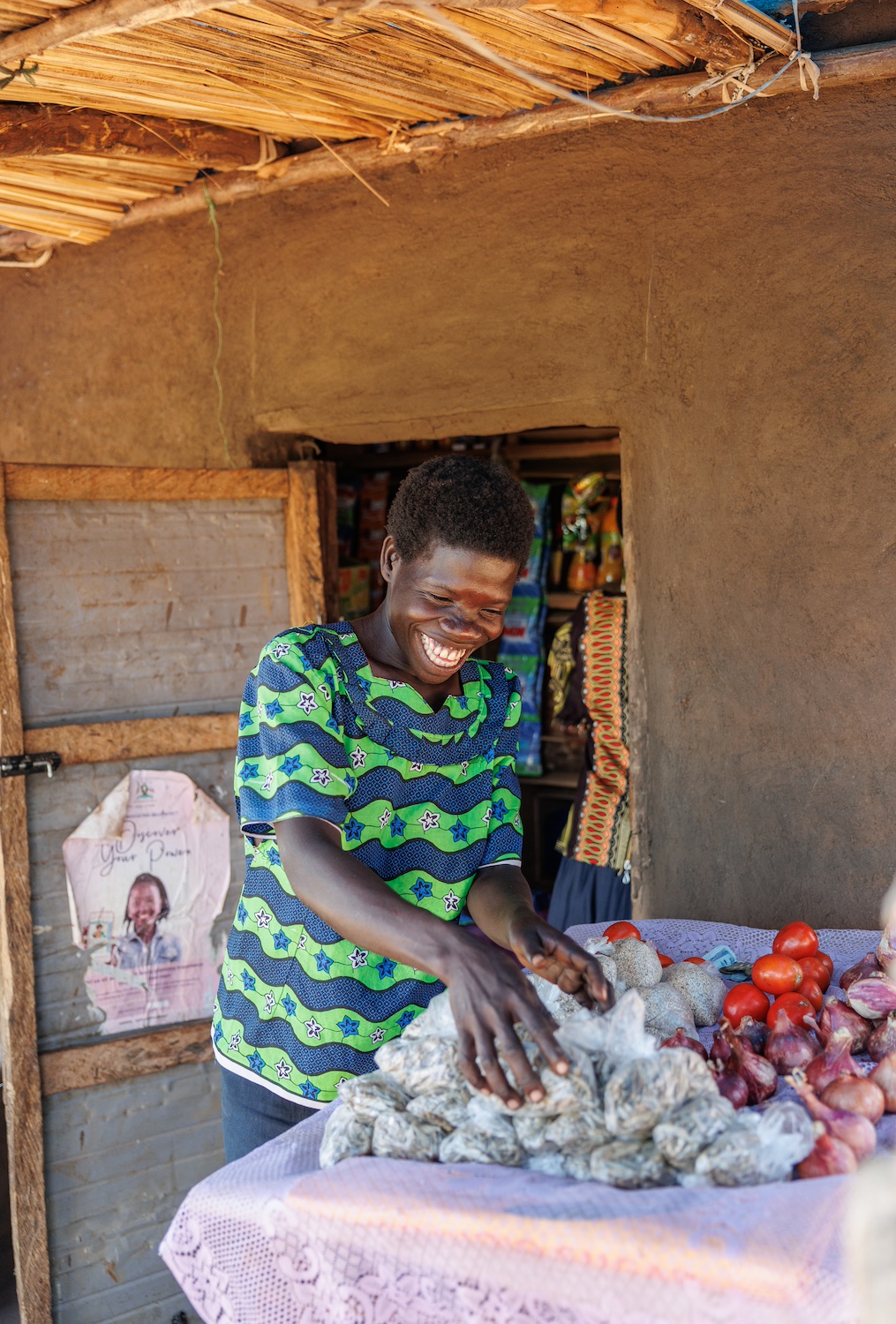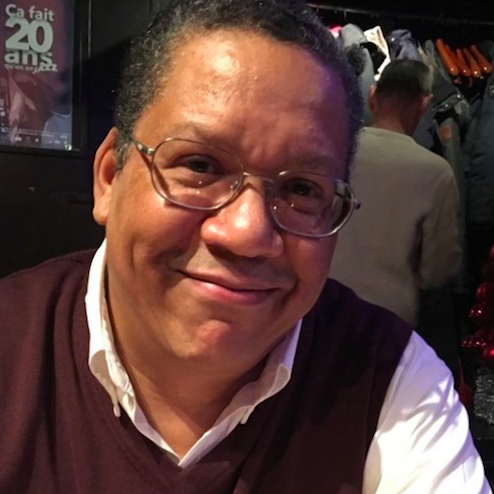
Three entrepreneurs who are a part of the Delivering Resilient Enterprises and Market Systems program in Uganda. (Image: Jjumba Martin for Mercy Corps)
After helping thousands of refugees in Uganda start businesses through microfinancing and entrepreneurship training, the Delivering Resilient Enterprises and Market Systems (DREAMS) program is expanding to Ethiopia, the country with the second-largest refugee population in Africa.
The DREAMS program is expected to provide $500 in seed funding and business training to an initial group of 1,200 people in Ethiopia, many of whom fled the civil war in Somalia. It’s a collaboration between the nonprofit Village Enterprise and the non-governmental humanitarian aid organization Mercy Corps.
“With refugee numbers at record levels, as well as increases in food prices and decreases in aid budgets, it’s more important than ever that we are providing sustainable solutions and equipping refugees with the training, resources, and markets to become self-reliant,” Dianne Calvi, CEO and president of Village Enterprise, said in a statement about the program's expansion.
Participants in the program take workshops and training sessions facilitated by Village Enterprise to acquire skills in initiating, promoting and growing a business. Then, Mercy Corps identifies lucrative prospects and enables connections with local markets to help the new entrepreneurs optimize their operations and scale their enterprises.
Village Enterprise recently completed a multi-year study of entrepreneurs who participated the organization's programs in Uganda and Kenya. Those entrepreneurs experienced an 83 percent increase in income and more than a 900 percent increase in savings on average after starting the program, Calvi told TriplePundit. Five years later, more than two-thirds of the businesses are still running.
The training is organized into two groups, Winnie Auma, chief program officer for Village Enterprise, told 3p. The first is dedicated to business skills training on topics like how to manage money, use business records to make decisions, and develop, diversify and expand a business. The second focuses on technical skills training provided by private-sector volunteers that is specific to the different value chains established in Uganda and Ethiopia.
“Something very important about our training is that the content was built with behavioral science practices around it,” Auma said. “Goal-setting is a critical part of what gets covered as part of our training and mentoring curriculum. For example, we would use videos from previous Village Enterprise entrepreneurs to inspire model behavior around these communities.”

Another key element to the program’s success is that the business mentors are refugees themselves, Calvi said. They come from the same countries, share the same cultures, and speak the same languages as the participants.
“When they’re delivering the program, they understand the challenges,” Calvi said. “They understand the cultural background of the people they're working with. That ensures high-quality training, but it also ensures that we are moving people along in terms of their well-being as well as increasing their income, savings and assets.”
The program doesn’t just benefit the entrepreneurs. It engages with local leaders and the whole community, Auma said.
“We actually encourage all of the household members to participate in our training whenever possible,” Auma said. “We do community dialogues. We actually seek the consent of the households to make sure that they’re in agreement in terms of who gets to participate in this program.”
Salome Chandra was one of the first participants in the DREAMS program for refugees. Chandra is a mother who arrived in Uganda with six children after escaping the conflict in South Sudan in 2016. When she arrived, all she had were the clothes on her back, a bag of rice, a bottle of oil, and a small jug of water, Calvi said.
“She introduced herself to me as a mother of seven and explained that one had already passed away,” Calvi said. “When I asked her about her husband, she said that she didn’t know where he was or if he was even still alive. She was forced to flee her home in Juba, South Sudan, when war broke out and had to walk for two months with her six children, ages 1 through 12, carrying her youngest on her back.”
Chandra had just completed the DREAMS program training when Calvi met her. “She was excited to be starting her retail business selling meat,” Calvi said. “She spoke enthusiastically about all that she had learned in the training and how no one could take that away from her.”
Now, Chandra is a successful businesswoman and a leader in the refugee camp. Her kids are all attending school. And despite the fact that she hasn’t been able to return home, she feels hopeful for her future, Calvi said.
“[She] was the victim of a broken system,” Calvi said. “Five years later, she owns two acres of land. She is a successful businesswoman running both a retail and agriculture business. She provides not only for her six children, but also five other children who have lost their parents.”
Editor's note: This story was updated on March 12 to clarify that Village Enterprise's multi-year outcomes study includes program participants in both Uganda and Kenya.

Gary E. Frank is a writer with more than 30 years of experience encompassing journalism, marketing, media relations, speech writing, university communications and corporate communications.














